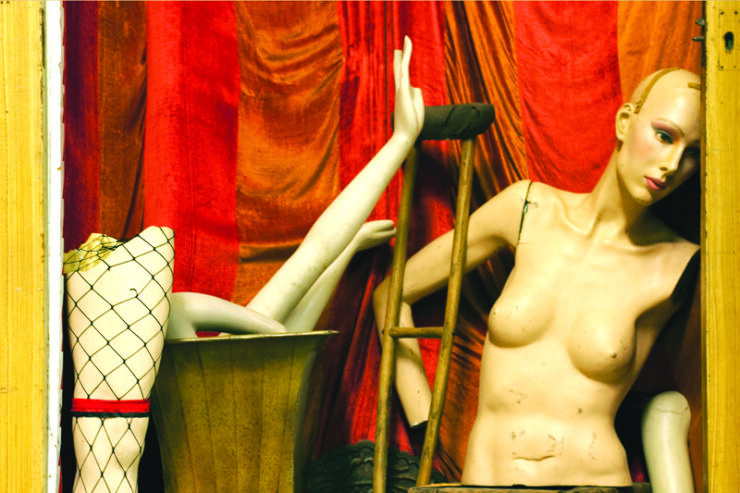Exhibit engages students in conversations about human rights and social justice
Art by Ellie Ivanova
VISUAL REPRESENTATIONS INSPIRED by human rights violations and social justice issues can be arresting, compelling, and sometimes, disturbing. They can also begin conversations.
This fall, the Human Rights Research and Education Centre is bringing an art exhibit based on human rights and social justice issues to the University of Ottawa. Professor Richard Lubben, Fulbright Chair and organizer of the event hopes to create a space to ask questions about the art, the artists, and their representations of social justice issues.
“I don’t think it has the answer to the world’s problems, but it’s one way of starting that conversation,” Lubben said.
The official opening reception is in room 570 in Fauteux Hall on Sept. 19 from 5 p.m. to 7 p.m. From Sept. 20 to Oct. 11, the Human Rights and Social Justice Art Exhibit will be free and open to the public Monday to Friday from 9 a.m. to 3:30 p.m. The artwork comes from artists around the world and each piece addresses human rights.
One of the limitations of exhibitions in galleries can be a lack of conversation between the audience and the artists. Viewers may enjoy looking at artwork, but have a hard time connecting with artists’ intentions and motivations.
As an exhibit focusing on human rights and social justice, Lubben and the other organizers are giving people many opportunities to engage with the art and artists. Providing detailed artists’ statements, holding panel discussions, creating an online project, and holding a second exhibition for local artists are all part of increasing engagement.
On Sept. 18 at 11:30 a.m. in Fauteux Hall, the Human Rights Research and Education Centre and the faculty of common law will have a short presentation by a panel of professors and activists to discuss the exhibit with the audience.
“It’s not necessarily just about art,” Lubben said. “It’s using art as a starting point and then going off in unknown directions.”
The conversation will be expanded in the next semester, as the online portion of the project will be available to students around the world. Lubben hopes to offer a wider range of perspectives on human rights and social justice issues.
“It’s an option if you don’t have several thousand dollars to travel, at least you can see someone else’s point of view,” Lubben said.
The entire project aims to engage the community in discussion and provide different perspectives through art. Lubben hopes the project engages students in action but recognizes that just giving someone a new point of view to consider can lay the groundwork for later action.
“Ideally you would look at artwork and have a conversation and want to make the positive change right away,” he said. “I don’t think it’s realistic that’s going to happen with everybody, but it might happen with some people, and that would be fantastic.” f





